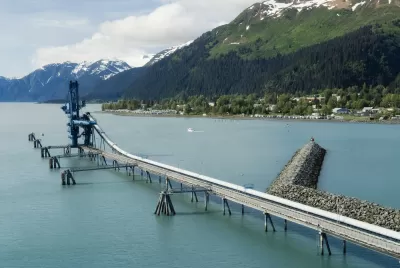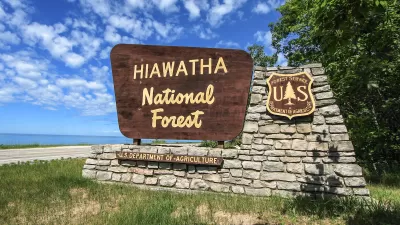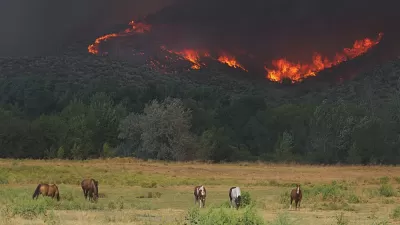Alaska could follow in the footsteps of California and Europe by leveraging the state’s natural resources to create a carbon offset and sequestration program, mitigating the environmental effects of its industries and raising revenue for the state.

Alaska Gov. Mike Dunleavy introduced a package of bills at the end of January to that, if passed, would launch a carbon capture, utilization, and storage program (CCUS) .
According to a press release from the Governor’s Office, the so-called “Carbon Management and Monetization Bill Package” will also have the benefit of raising a vaguely estimated “billions” of dollars for the state.
The first bill, SB 49, would create a regulatory framework for the storage of carbon dioxide, according to an article by Sean Maguire and Alex DeMarban for the Anchorage Daily News. The second, SB 48, would “create a framework for allowing carbon offsets using state land and then selling carbon offset credits,” according to the article.
The article also provides background on the idea by citing several reports that have explored the potential of the state’s wild areas to provide carbon offset and sequestration.
FULL STORY: Gov. Dunleavy says his carbon storage bills could bring Alaska ‘billions,’ but many unknowns remain

Planetizen Federal Action Tracker
A weekly monitor of how Trump’s orders and actions are impacting planners and planning in America.

Map: Where Senate Republicans Want to Sell Your Public Lands
For public land advocates, the Senate Republicans’ proposal to sell millions of acres of public land in the West is “the biggest fight of their careers.”

Restaurant Patios Were a Pandemic Win — Why Were They so Hard to Keep?
Social distancing requirements and changes in travel patterns prompted cities to pilot new uses for street and sidewalk space. Then it got complicated.

Platform Pilsner: Vancouver Transit Agency Releases... a Beer?
TransLink will receive a portion of every sale of the four-pack.

Toronto Weighs Cheaper Transit, Parking Hikes for Major Events
Special event rates would take effect during large festivals, sports games and concerts to ‘discourage driving, manage congestion and free up space for transit.”

Berlin to Consider Car-Free Zone Larger Than Manhattan
The area bound by the 22-mile Ringbahn would still allow 12 uses of a private automobile per year per person, and several other exemptions.
Urban Design for Planners 1: Software Tools
This six-course series explores essential urban design concepts using open source software and equips planners with the tools they need to participate fully in the urban design process.
Planning for Universal Design
Learn the tools for implementing Universal Design in planning regulations.
Heyer Gruel & Associates PA
JM Goldson LLC
Custer County Colorado
City of Camden Redevelopment Agency
City of Astoria
Transportation Research & Education Center (TREC) at Portland State University
Camden Redevelopment Agency
City of Claremont
Municipality of Princeton (NJ)





























